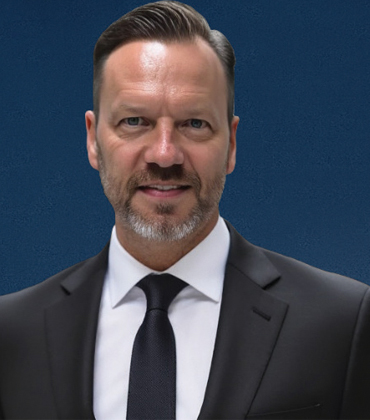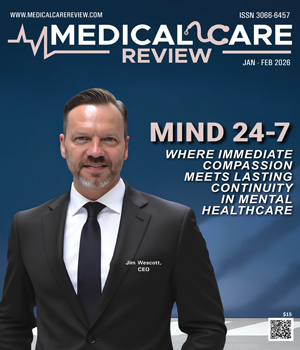- Home
- Mental Health
- MIND 24-7
Access, compassion and immediacy define effective behavioral health care; yet, for many people, that combination remains out of reach. Most still end up in the emergency room.
Designed for physical trauma, emergency rooms have become the default for mental-health crises, not because they are ideal, but because alternatives are scarce. They are rarely equipped to handle emotional or psychological emergencies, leaving patients waiting for hours in settings that heighten distress instead of easing it.
Jim Wescott, CEO of MIND 24-7, saw those gaps firsthand. For more than twenty-five years, he worked as an emergency department nurse, watching families arrive in the middle of the night seeking help, only to leave hours later with little more than a prescription and a referral they would wait weeks to use. Those experiences shaped his vision for a better approach, one that treats behavioral health with the same urgency and respect as trauma care, while adding empathy, speed and seamless continuity.
MIND 24-7 became his answer. It closes that gap by creating a system where no plea for help goes unheard and compassionate care is always within reach. Its walk-in crisis centers stay open around the clock, requiring no appointments and offering immediate support in private, calming spaces designed to assess and guide people through their most challenging moments. Each patient is evaluated within an hour in an environment built for emotional safety rather than medical urgency.
“The hardest part for many people isn’t asking for help; it’s staying connected to it,” says Wescott. “Our model ensures that no one slips through the cracks once they leave our doors.”
Each visit closes the loop, turning a moment of crisis into the first step toward continuous, connected care. Crisis stabilization, therapy, medication support and sub-acute treatment happen under one roof, with separate pathways for children, teens and adults. Case managers work beside clinicians to address the forces that often fuel a crisis due to unstable housing, food insecurity, family stress; so, recovery isn’t left to medication alone.
After each visit, teams coordinate with hospitals, therapists and health plans to ensure the next step is already in place. Follow-up care feels guided, not left to chance.
The ripple reaches the entire system. Health systems see fewer boarded patients and more capacity for medical emergencies. Payers record lower costs than with repeated ER visits or inpatient stays. Police can drop off individuals in crisis and return to patrol within minutes instead of waiting hours in corridors. School counselors now have a reliable resource to refer struggling students to, even at late hours.
-
The hardest part for many people isn’t asking for help; it’s staying connected to it. Our model ensures that no one slips through the cracks once they leave our doors.
A recent case in Arizona shows the stakes. A fourteen-year-old girl who had gone missing was rescued from a hotel. Despite being a victim, she was nearly sent to juvenile detention because the state lacked secure alternatives for children in crisis. MIND 24-7 partnered with Chandler Police to intervene, providing immediate stabilization in a therapeutic setting built for healing rather than punishment. She returned home safely with ongoing support.
Cases like this reveal a harsh reality: without crisis-specific infrastructure, vulnerable youth often fall into systems designed for punishment, not care. MIND 24-7 disrupts that pattern by providing first responders, schools and families with an immediate option that prioritizes treatment over detention.
Mental-health crises are often described as burdens on families, schools, emergency departments and communities. Wescott sees them differently, as inflection points where the proper intervention can change a life.
A teenager who is stabilized at MIND 24-7 instead of spending the night in the ER might stay engaged in school. A parent connected to housing resources might avoid the spiral that leads to repeated crises. A child diverted from detention might never enter the justice system at all. These are measurable outcomes taking place in every community MIND 24-7 serves.
After witnessing the limits of emergency psychiatry for a quarter century, Wescott has built something that doesn’t just fill a gap; it reimagines what crisis response can be.
“Every crisis is a turning point. At MIND 24-7, we make sure it turns toward hope,” concludes Wescott.
Thank you for Subscribing to Medical Care Review Weekly Brief





